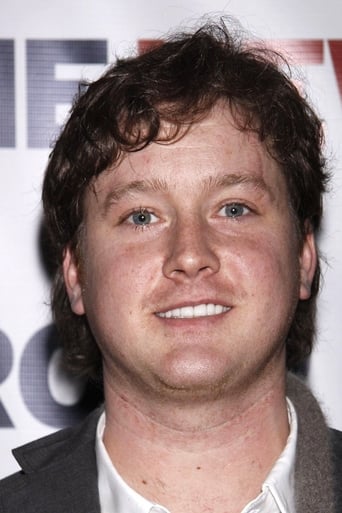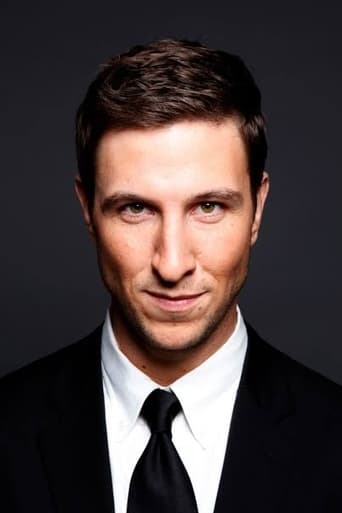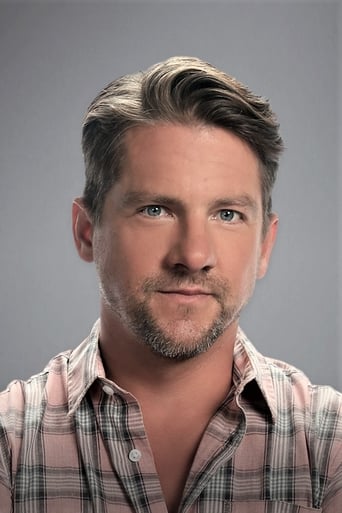Jason Kennedy
I don't write a lot of reviews, but every once and a while a film will get stuck in my head, and writing about it is the only thing that seems to dislodge it from my daily thoughts. I really liked this film even though I found it disturbing, and hard to watch. Sometimes things are a little to real. This may be a fictional story, but it is something that could be, and that makes all the difference in an age of media that can produce anything. My worry for the main character,Duncan Mudge (played by Emile Hirsch),was palpable through the whole film. His interaction with Perry Foley (played by Tom Guiry) was tense and destined for disaster from the beginning. Both actors played great roles, but Hirsch's portrayal of Mudge was done especially well. It reminds me of DiCaprio's portrayal of Arnie Grape. I can't think of anything else off the top of my head to compare it to. A lot of people play misfits convincingly, but occasionally you will find a character like Duncan who really sticks out. I cannot give the credit entirely to the actors in this film. It would not be fair to ignore the writing and directing that the characters are dependent on for their existence. Michael Burke obviously had a vision in his head that he was able to carry from the writing to the screen as both the writer and director. He did a wonderful job creating a movie that made me uncomfortable as hell from beginning to end.
arizona-philm-phan
.................is Falling, The Sky is Falling" (on the director's head, we can only hope)The synopses ((synopsis?........oasis.....oases.......you say tomato, I say to-mah-to.......you say banana, I say ba-nah-na........oh, never mind, please excuse the foolishness)) of two or three of the reviewers already here are just topnotch. I can add nothing much to them, but would like to stick in the following few observations for your consideration.Only 3 actors are really deserving of truly big acknowledgment in this film (Hirsch for Duncan, Guiry for Perry and Jenkins for "Chicken Boy's" Dad (who IS distant, as described by one reviewer, but certainly not emotionless, as described by another, for he gives us at film's end an unexpected and utterly amazing emotional moment). Oh, wait, there is also the sweet teen-girl (Handerhan's Tonya) who becomes "Chicken Boy's" benefactress/protectress during the film. Well, gee, stupid me, slow down, almost completely forgot there is, indeed, a fifth notable character--"Chicken," the little lady who gives her all (and more) to the making of this film. We've been given a couple of very brave young stars (respectively, about 17 and 21 years at time of filming). Not every rising young actor, particularly one with the level of sensitivity displayed by Hirsch, and also Guiry (under a 'tough guy' veneer), is going to accept a role which requires him to give fellatio, or play the part of the one forcing it. Even more difficult might be agreeing to play a character who is going to be so obviously "taking it up the bum" or, again, play the part of the one forcing it (sorry for the unintended play on words). To compound the difficulty, not only must a young Hirsch, playing Duncan, face his screen Dad following such behavior, but a young Hirsch playing this scene must also face his real-life Father, who, according to the director's DVD commentary, accompanied Emile on his casting call (and, I would suspect, due to young age, to the shooting as well). What a great open and understanding relationship we must have between these two, eh? To close out my thoughts, the following is a must-mention.Beyond stunned(!) has to be this reviewer's reaction to a statement made by the director (dare I even afford him that title----notice the small 'd') in his voice-over commentary as the DVD plays out. It's in a near-end-of-film scene at which we find our young teens, well after dark, huddled in an old truck cab. Duncan, in the very depths of his despair, at his very lowest emotional level to this point in the film, has made his way to Perry's house and awakened him in an effort to find even some slight display of comfort and affection. The scene that plays out is the film's most emotional to that point (the earlier barn rape being the most shocking). Yet, astoundingly, rather than discuss the emotional difficulties likely faced by both young actors in playing out this difficult scene and how he might have facilitated their doing so, the director, instead, spends the entire time commenting over and over why the scene was (apparently) shot in black and white. If possible, even more thoughtless are words he then utters, quoted here pretty much verbatim: "What we were going for....to sort of undercut the, uh, you know, uh, mushy love story, you know, part of it, to make a real coolness that, you know, uh, to give the scene this other sort of color......" Being, I hope, an empathetic viewer, I was just floored. I can't imagine how hard it must be for an actor to have gone through what Hirsch apparently did to reach the point of shyly and almost inaudibly asking Perry: "Did ya ever think about kissing me?" Then, to later learn, in viewing the DVD, that your director's apparent take on the scene was that it's "mushy." OH, MY!PS--And, no, I haven't "mis-adjectivized" the scenes mentioned so far ('most shocking'......'most emotional'). But what, you ask, of that next-to-last-scene between Duncan and his tormentors? Ah, say I, that one has to be labeled the 'most sad' (for it tells us of our treatment of one another). And what about the movie's final scene, you query? Well, the 'most uplifting', of course.PPS--Well, can't stay mad forever. Thank you, Mr. Director, for giving us a very well written and well-brought-to-the-screen production.****







